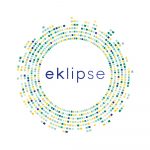Alternet will host a special day of conference sessions as part of the Sustainability Research + Innovation Congress 2024 in collaboration with Sustainability Science Days, hosted in Helsinki Finland. The Alternet Day (Wednesday, 12 June 2024) programme will include three sessions focused on the theme of nature restoration.
Alternet Day
at the Sustainability Research + Innovation Congress 2024 in collaboration with Sustainability Science Days
12 June 2024 – Helsinki, Finland
Since 2021, the Sustainability Research & Innovation Congress (SRI) has united global leaders in research, government, civil society, and business to meaningfully advance progress towards sustainability. The SRI Congress offers an exceptionally inclusive and inspiring global platform for co-creating state-of-the-art solutions and innovations and building a coalition of the willing to achieve a sustainability transformation. SRI is co-convened by Future Earth and the Belmont Forum with local co-organizers.
SRI has been held in Oceania, Africa, and Latin America, and is now heading to Europe. In 2024, SRI will be organized in collaboration with Sustainability Science Days (SSD), which for over six years has been the largest sustainability science conference in Finland. SSD is a joint collaborative effort between Finland’s two largest universities, the University of Helsinki, and Aalto University. SRI/SSD2024 will bring together 2000+ participants from more than 100 countries online and in-person with events on both campuses in Helsinki and Espoo.
Alternet celebrates its 20th birthday this year. The network brings together international natural and social science researchers from 21 European countries to integrate our understanding of biodiversity, ecosystems, and the services they provide to society and to create a platform for meaningful communication with policy-makers and the public.
With biodiversity declining despite over 30 years of conservation efforts, attention has recently turned to restoring degraded nature, alongside its preservation and sustainable use. Restoration focuses on improving the ecological status of ecosystems and implies an improvement in the conservation of biodiversity, supporting of ecosystem functions and provision of ecosystem services. In the EU Biodiversity Strategy, restoration goals range from reversing specific negative trends related to biodiversity loss (e.g., reductions in pollination), through reducing risks to biodiversity (e.g., from chemicals) to active restoration activities (e.g., planting trees, remediating polluted soils, or restoring free flowing rivers). Globally, restoration is often coupled with afforestation and wetland restoration.
In the following programme of sessions, Alternet invites you to explore key discussions pertaining to: 1) ecosystem restoration for increased biodiversity and multiple ecosystem benefits; 2) the science-policy interface in nature restoration; and 3) the governance of nature restoration.
Session 1: Ecosystem restoration for biodiversity and multiple ecosystem benefits
Approaches to restoring different ecosystem types and their functions depend on both the legacies of human activities which have resulted in ecosystem degradation and the restoration objectives. For example; wetlands have been restored to improve nutrient retention, agricultural lands to manage drought risks and increase fertility, forest ecosystems to generate habitat for species relying on old-growth characteristics and reduce pest and drought risks or peatlands have been restored for climate change mitigation as well as water retention and purification. Alongside these primary justifications, numerous other ecological, social and economic benefits have been identified as motivating restoration. Restoration helps to tackle the triple planetary crises crisis: biodiversity, climate and pollution. Nexus-approaches seek to maximize synergies and minimize tradeoffs in addressing these crises and generate policy coherence. In this session we will consider examples of good praxes which help to provide a knowledge-base for the effectiveness of different restoration approaches–and inspect the extent to which they are optimised for the production of multiple ecosystem benefits.
- Introduction: What Alternet has to offer on nature restoration (Philip Roche, INRAE; Maurice Hoffmann, Alternet; Chris Short, CCRI, University of Gloucestershire)
- Keynote: Coastal restoration with nature and people: showcasing a living lab approach (Ana Lillebo – Univ. Aveiro–CESAM)
- Nature-based solutions to preserve the wetlands along the critical zones of River Nyong, Cameroon (Norbert Tchouaffe Tchiadje – University of Ebolowa and Pan-African institute for Development)
- Exploring key environmental factors impacting coastal mangrove ecosystem health (Leon Radix, University of Gloucestershire)
Session 2: Science-policy interface supporting nature restoration
With the mounting evidence of ecosystem degradation causing biodiversity loss, a call to turn negative trends to positive has resulted in important science-policy challenges. The EU Nature Restoration Law proposal resulted in a debate with recurring gridlock and several compromises to the original Commission proposal, in particular, regarding the role of agricultural lands and peatlands. In this session, we investigate how the process of preparing the EU Nature Restoration law and other key science policy relies on existing knowledge about biodiversity restoration and on pre-existing knowledge-platforms and knowledge streams. What does this mean for future knowledge needs, including monitoring and evaluation processes?
- Keynote: The Eklipse knowledge brokering mechanism (Marie Vandewalle, UFZ)
- Connecting biodiversity knowledge and decision-making at the EU (Kaisa Korhonen-Kurki and Kati Vierikko, Finnish Environment Institute Syke)
- Reviving Europe’s rivers: challenges and opportunities from the new nature restoration law (Sibylle Schroer, Institute of Freshwater Ecology and Inland Fisheries IGB)
- The role of nature restoration as nature-based solutions in coastal communities’ empowerment (Ina M. Sieber, Kassel Institute for Sustainability, Kassel University)
Session 3: Governance of nature restoration
Restoration approaches range from active manipulation of ecosystems (with excavators and shovels) to reductions in active management such as grazing. Coordinating and implementing such a range of actions requires changes to the current management practices and to the rights and responsibilities of different actors implementing or affected by them. Restoration may, for example, be publicly funded or carried out by NGO, citizen groups and/or financed by private businesses for a variety of motivations, ranging from reducing supply chain risk through to corporate social responsibility. This entails novel and diverse combinations of actors in teams working for restoration, each with different resources, interests, and accountabilities. These new mixes should in the long-term strengthen restoration but also highlight tensions: for example, how to fairly balance the needs of local citizens with those of corporate actors? In this session, we consider different approaches to governance of restoration, the need for engagement with local stakeholders, and the learnings around the effectiveness, feasibility and legitimacy of these approaches.
- Keynote: An intergovernmental science-policy interface meets the different levels of governance (Eeva Primmer, Finnish Environment Institute Syke)
- Overcoming the bottlenecks for upscaling nature restoration in the EU: the role of the scientific community (Kris Decleer, INBO)
- Just restoration: justice perspectives in the implementation of restoration (Salla Rantala and Anu Lähteenmäki-Uutela, Finnish Environment Institute Syke
- How ready are we for opening a way to nature? Learning the lesson from implementation of nature based solutions for urban regeneration and freshwater ecosystem restoration in rural areas (Kinga Krauze, European Regional Centre for Ecohydrology)
- Engaging early career researchers in the European Science Service for Biodiversity (Kata Fodor, ESSRG; Karmen Czett, ESSRG; Jomme Desair, INBO)
Practical info
- Date: Wednesday, 12 June 2024
- Location: Helsinki, Finland
- Plan your trip





